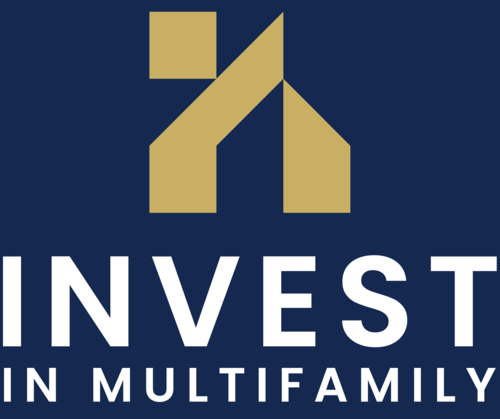Investing in an apartment complex can be a lucrative venture, offering the potential for steady rental income and long-term capital appreciation. However, the costs associated with such an investment can vary significantly based on numerous factors, including the size, location, and condition of the property. This article provides a detailed analysis of the costs involved in buying an apartment complex, supported by expert insights and real-world data.
Key Takeaways:
- The cost of buying an apartment complex can range from $2 million for a small building to $50 million or more for a large complex.
- The average sold price of a multifamily building (widely varying in size) across the U.S. in 2021-2022 was $1,580,091, with a median sale price of $238,400.
- Building costs can range from $150 to $400 per square foot, or $75,000 to $600,000 per unit.
- Factors such as location, building type, and market conditions significantly influence the overall cost.
Understanding the Costs
Purchase Price
The purchase price of an apartment complex is influenced by several factors, including the size of the building, its location, and the condition of the property. According to LoanBase, the cost of buying an apartment complex can range from $2 million for a small building to $50 million or more for a large complex. This wide range underscores the importance of conducting thorough market research and financial analysis before making an investment.
Building Costs
The cost to build an apartment complex varies widely based on location, building type, and market conditions. According to Willowdale Equity, the cost to build an apartment complex in the U.S. can range from $4.7 million to $52 million, with an estimated cost of $80,000 to $280,000 per unit. The average cost to build an apartment complex is between $150 to $400 per square foot.
Financing Costs
Securing financing for an apartment complex is a critical step in the investment process. The down payment typically ranges between 20% and 30% of the purchase price, but it can go as high as 40% for commercial real estate loans. For instance, if you’re buying a $1 million apartment complex, you might need to put down $200,000 to $400,000 upfront. The exact amount depends on various factors, such as the lender’s requirements, the property’s value, the loan type, and your financial situation.
Operating Expenses
Operating expenses include maintenance costs, property management fees, utilities, insurance, and property taxes. These expenses can significantly impact the net operating income (NOI) of the property.
According to Lev, “tenants tend to rent for years at a time. Rents tend to be stable and tenants pay regularly.” This stability can help offset some of the operating expenses, but it’s essential to factor these costs into your financial projections.
Market Conditions
Market conditions play a crucial role in determining the cost of buying an apartment complex. High-demand areas with low vacancy rates and strong rental markets typically command higher prices. Conversely, properties in less desirable locations may be more affordable but come with higher vacancy risks and lower rental income potential.
Expert Insights
Uri Pearl, Financing Expert at Lev
“Multifamily has proven to be a very strong investment over time. People will always need a place to live, and especially in these past three years, it has been a very good investment. So even the biggest landlords in the world like Blackstone are investing heavily in apartment buildings.”
Brian Boyd, Owner and Managing Attorney at Boyd & Wills, PLLC
“Tenants tend to rent for years at a time. Rents tend to be stable and tenants pay regularly. The pandemic has also solidified multifamily as a stable asset class, as more people are renting for longer. Multifamily occupancy is expected to remain above 95% for the foreseeable future, according to CBRE.”
Strategic and Impactful Insights
Evaluating Investment Potential
When evaluating the investment potential of an apartment complex, it’s essential to consider both the current financial performance and the property’s future growth prospects. Key metrics to analyze include the cap rate, gross rent multiplier (GRM), and net operating income (NOI). These metrics provide valuable insights into the property’s profitability and potential return on investment.
Cap Rate
The capitalization rate, or cap rate, is a key metric used in real estate to estimate the investor’s potential return on investment. It’s calculated by dividing the NOI by the property’s current market value. For example, if an apartment complex generates an NOI of $50,000 annually and its market value is $500,000, the cap rate is 10% ($50,000 / $500,000). This percentage reflects the return on investment if the property were purchased outright with cash.
Gross Rent Multiplier (GRM)
The Gross Rent Multiplier (GRM) is a simple tool used to assess the value of a rental property. It is calculated by dividing the property’s purchase price by its gross annual rental income. The resulting figure gives an investor a rough estimate of how many years it would take for the property to pay for itself through rental income, ignoring expenses. A lower GRM may indicate a more attractive investment opportunity, all other factors being equal.
Net Operating Income (NOI)
Net operating income is the amount of money left after all expenses are paid. It’s calculated by subtracting total operating expenses from the gross operating income (GOI). Positive cash flow means you made money during a designated period, while negative cash flow means the property costs money during that period.
Challenges and Considerations
Financing Challenges
Securing financing for an apartment complex can be challenging, especially for first-time investors. Lenders typically require a substantial down payment and thorough financial documentation. It’s essential to explore various financing options, including traditional banks, credit unions, private lenders, and real estate crowdfunding platforms.
Property Management
Managing an apartment complex requires significant time and expertise. Investors must decide whether to manage the property themselves or hire a property management company. While self-management can save on management fees, it requires a substantial time commitment and knowledge of property management practices. Hiring a property management company can provide professional management services but comes at a cost.
Market Risks
Investing in an apartment complex comes with inherent market risks. Changes in local economic conditions, shifts in tenant demand, and fluctuations in rental rates can impact the property’s financial performance. It’s crucial to conduct thorough market research and stay informed about local market trends to mitigate these risks.
Broader Context and Implications
Emerging Trends
Emerging trends in the real estate market can significantly impact the cost and profitability of apartment complexes. For example, the rise of remote work has increased demand for rental properties in suburban and rural areas, while urban centers may experience higher vacancy rates. Investors should stay informed about these trends and adjust their investment strategies accordingly.
Future Possibilities
Looking ahead, the real estate market is likely to continue evolving, with new opportunities and challenges emerging. Technological advancements, changes in housing preferences, and shifts in economic conditions will shape the future of apartment complex investments. Investors who stay proactive and adaptable will be well-positioned to capitalize on these opportunities.
Conclusion
Investing in an apartment complex can be a profitable venture, but it requires careful planning, thorough research, and a clear understanding of the associated costs. By evaluating key metrics, considering expert insights, and staying informed about market trends, investors can make informed decisions and maximize their potential for success. Remember, every real estate investment journey is unique, and while this guide provides a solid foundation, it’s crucial to tailor these insights to your specific circumstances and goals.

